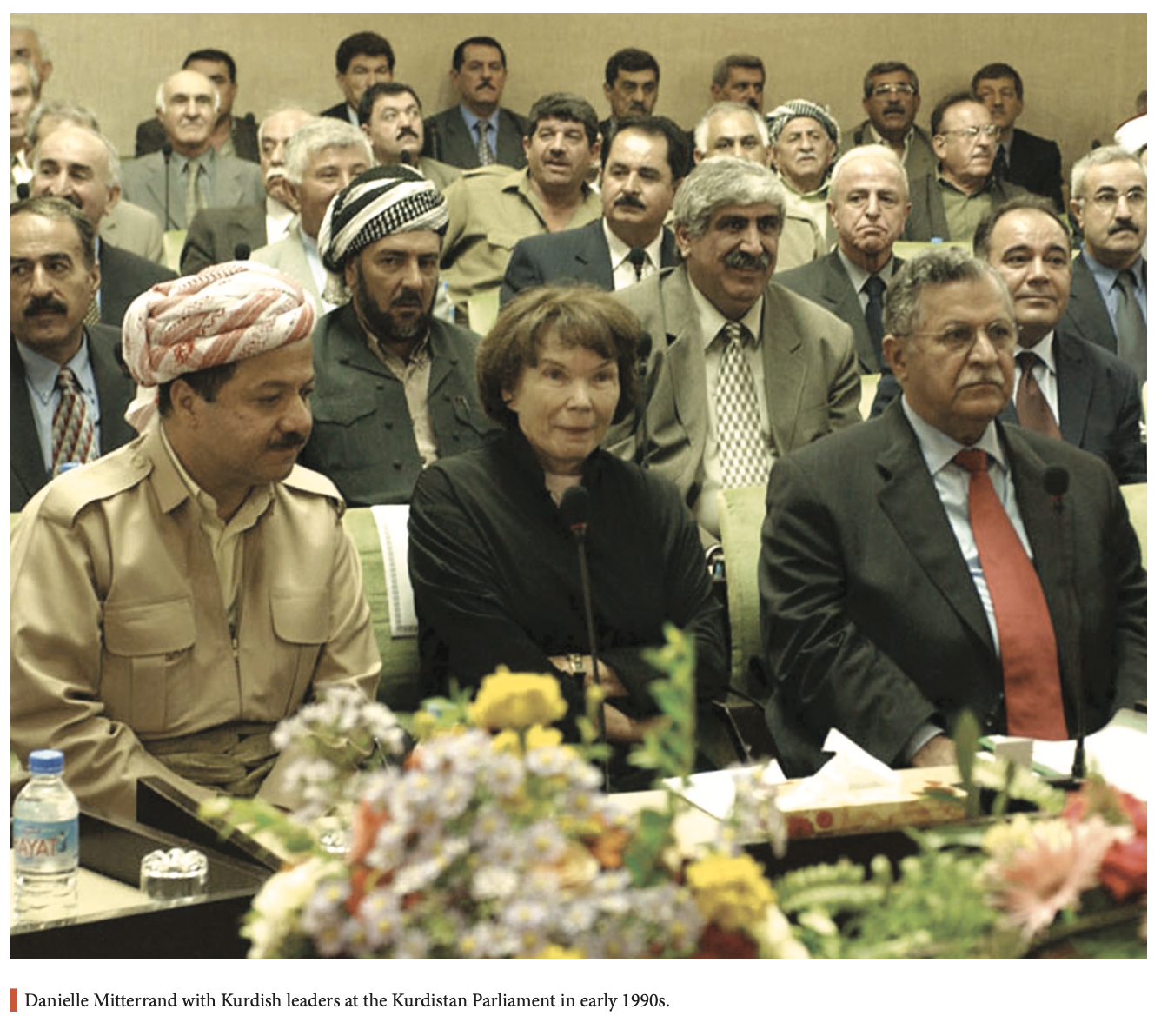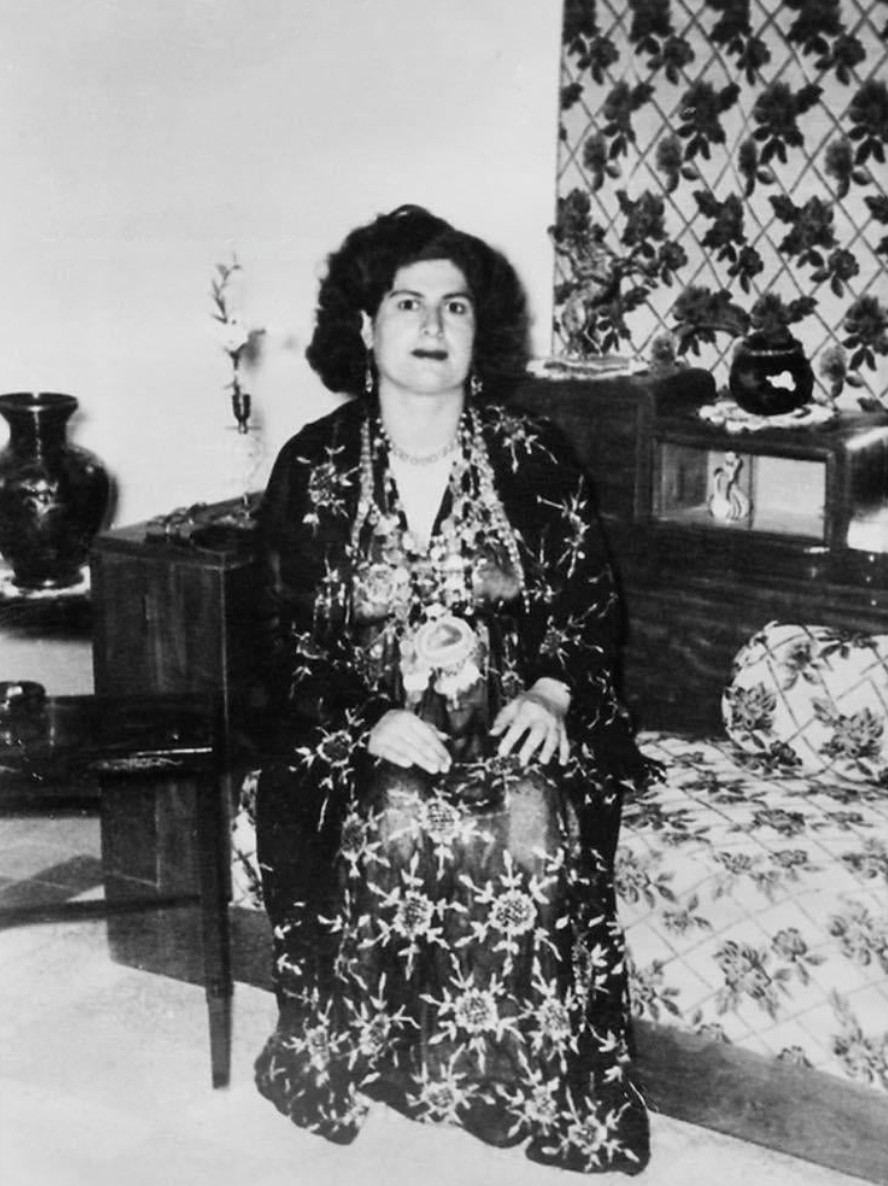There are details that do not deceive: in the wake of the visit of Iraqi Prime Minister Mohammed Chia Al Sudani to the Elysée Palace, Masrour Barzani was received on February 16 by French President Emmanuel Macron. If there is one ally on which the Kurdistan Regional Government (KRG) and the Kurds more broadly can depend, it is France. Modern history is full of examples to prove it.
Few countries can boast of granting as much consideration to a stateless people as France has to the Kurds, of whom it will welcome at least 320,000 nationals on its soil in 2023 according to the Kurdish Institute of Paris. "France is happy with its friendship with Kurdistan and attaches great importance to it," declared Nicolas Sarkozy in 2010 at the occasion of the visit of KRG President Masoud Barzani.
Since then, the receptions of Kurdish officials have followed one another in Paris. Between 2014 and 2017, amid the war against ISIS, François Hollande amplified the movement by receiving Masoud Barzani three times, while the Kurds acted as the West's most reliable ally on the ground. His successor as president of the autonomous Kurdish region, Nechirvan Barzani, will also be invited to the Elysée Palace by the current French president Emmanuel Macron in March 2021.
"When things go very badly for the Kurds, we are there. We can be there militarily, as in the war against ISIS, and we can be there with diplomatic force. After the September 2017 referendum, what broke the diplomatic embargo faced by Iraqi Kurdistan was the invitation in December to the Élysée Palace of Nechirvan Barzani (KRG Prime Minister) and Qubad Talabani (Deputy Prime Minister) by Emmanuel Macron," noted the French consul in Erbil Olivier Decottignies.
Decottignies also recalled that (former French president) François Hollande (in September 2014 and January 2017) and Macron (in August 2021) were "among the only heads of state to have visited Erbil."

"One of the first countries to open a consulate in Erbil”
This friendship between the French and Kurdish people does not date from yesterday. "France is the only country in the world that has integrated the Kurdish question into college and high school and believes that the Middle East cannot be stabilized and developed without taking into account the 40 million Kurds. France opened its doors to the Kurds after the gassing of Halabja and was the first country to offer mediation between the Talabani and the Barzani to get the Kurds out of the civil war in the 1990s," said Adel Bakawan, founder and director of the French Research Center on Iraq (CFRI) in Paris.
"In 2008, France was one of the first countries to open a consulate in Erbil," the Iraqi Kurdish-French political scientist also pointed out.
"You were illegal, you are the legality! You are the future! Be also the model of human rights and democracy," said Mr. Kouchner, then Minister of Foreign Affairs and former Minister of Health, one of the most fervent supporters of the Kurds since the mid-1970s, when the consulate opened.
Moreover, the co-founder of Médecins sans Frontières (MSF) and Médecins du Monde was the one who signed, in June 2010, a declaration of intent with Masoud Barzani that paved the way to a strengthening of economic, cultural, and commercial relations between France and Iraqi Kurdistan.
Among the phrases that have remained in the pantheon of Franco-Kurdish memories is that of President François Mitterrand in the days following the end of the Gulf War: "If the UN does not intervene militarily in northern Iraq to protect Kurdish civilians exposed to Baghdad's reprisals, it loses its raison d'être."
Mitterrand’s struggle led the United Nations Security Council to pass Resolution 688 on April 5, 1991, which led to a no-fly zone over Iraqi Kurdistan and to its de facto liberation from the clutches of Saddam Hussein and the Baathist central government.

Danielle Mitterrand, “mother of the Kurds”
François Mitterrand has gone so far as to take the Kurdish cause to Turkish lands during an official visit in April 1992, declaring to the Turkish media who interviewed him: "You will not find a solution and you will not be approved by a country like mine if at the base the Turkish Kurds do not benefit from all the rights that should be theirs."
But it is his wife, Danielle Mitterrand, who is considered "the mother of the Kurds.” It was she who answered the call of the Kurdish people and went to Turkish Kurdistan to visit the refugees of the Halabja massacre; she who in the following months convened an international conference on the Kurds in Paris with the help of the Kurdish Institute of Paris; she who, with Bernard Kouchner, influenced her husband to push for the UN Resolution 688; she who, with her foundation France Libertés, participated in the reconstruction of schools and in the delivery of school books and food aid in a devastated Iraqi Kurdistan in the beginning of the 1990s; she who almost died for her fight for the Kurds because of an attack against her convoy which killed five people in July 1992 near Sulaymaniyah; she who participated in the historic parliamentary session announcing the unification of the Kurdistan Regional Government in 2003; she who has a square named after her in Erbil, a boulevard in Dohuk and whose French schools in Erbil and Sulaymaniyah bear her name; and she whose name always comes up in conversations when one gets into a cab in Iraqi Kurdistan and says that one is French.
The Franco-Kurdish friendship also owes much to Frenchmen Roger Lescot, Pierre Rondot, and Father Thomas Bois, members of the French Damascus school founded by Kurdish brothers Bedir Khan and intellectuals and aristocrats in exile in Syria in the 1930s.
A friendship was then maintained by personalities such as the specialist in Kurdish language Joyce Blau, the couple of journalists nicknamed “Chris Kutschera,” the founder of the Kurdish Institute of Paris Kendal Nezan, the French doctor and First Consul of France in Erbil Frederic Tissot, the historian and political scientist Hamit Bozarslan, and many others.

"Kurdish and French people have the same values"
Moreover, many of the most famous Kurds of the 20th century have linked their destiny to Paris.
We can mention the Iranian Kurdish politicians Abdul Rahman Ghassemlou and Sadegh Sharafkandi, the father of Turkish cinema Guney Yilmaz, the Kurdish-Iraqi director Hiner Saleem, the Turkish-Kurdish singer Ahmet Kaya, the ballet dancer and princess Leyla Bedir Khan, the PKK co-founder Sakine Cansiz, and the pioneer of Kurdish culture and nationalism Kamuran Bedir Khan, a key figure in the establishment of Kurdish culture in France, where he was also the personal representative of General Barzani and one of the co-founders of the Kurdish Institute of Paris.
Beyond these men and women, this cooperation between France and the Kurds continues apace, as the KRG representative in France Ali Dolamari, whom I interviewed for CFRI in March 2022, pointed out: "The Kurdish and French peoples have the same values on democracy, human rights, coexistence, and respect for human rights (...) It is a relationship that is very strong on many levels, and we wish to deepen it further because France has helped the Kurds in very difficult situations. We will never forget that."
For Omar Hussein, a Syrian-Kurdish Francophile and journalist at Rudaw, "France also considers itself concerned with improving relations between Erbil and Baghdad, which is also a Kurdish interest. For its part, the Kurdistan Region wants France to play a role in promoting the rights of the region within federal Iraq."
And, as if to mark a new act in this relationship that has been patiently built for nearly a century, President Nechirvan Barzani laid the foundation stone of the Franco-German Cultural Institute on January 22, 2023, in Erbil (where there is also a French Institute), a place designed to further promote links between the Kurdish and French peoples, but also German, in the heart of the historic citadel of Erbil. The story continues.
Benoit Drevet is a French freelance journalist in Erbil and correspondent for Radio France, La Croix, and RTS.

